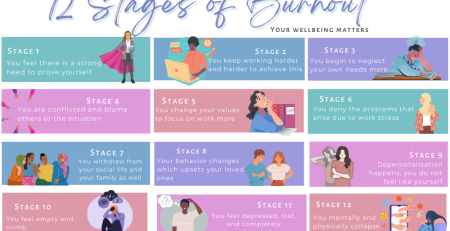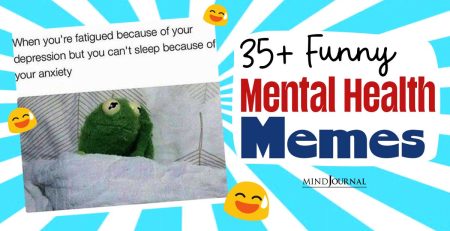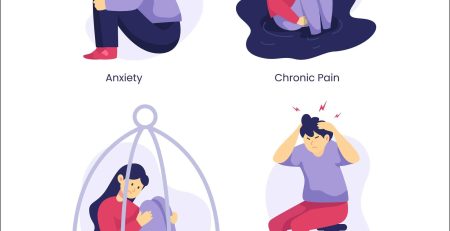Depressed? Discover 5 Uplifting Strategies to Reclaim Joy
Feeling depressed can be overwhelming, affecting both mental and physical health. Assistance is crucial for coping and recovery.
Depression, characterized by persistent sadness and a lack of interest in activities, is a serious mental health issue that touches millions worldwide. Recognizing its symptoms early is vital for effective management and treatment. A well-rounded introduction to the topic would address the complexities of depression, including its causes, symptoms, and impact on daily life.
Tailoring content to engage readers, it’s important to highlight the availability of support and treatment options. By providing actionable advice and empathetic understanding, content can be both informative and comforting. As a writer, creating content that resonates with those experiencing depression involves striking a balance between offering hope and presenting realistic steps towards managing their condition. With comprehensive, accessible information, individuals can feel empowered to seek the help they need and start their journey towards recovery.
What Is Depression?
Many misconceptions surround depression, often underplayed as mere sadness. Yet, it is much more complex, affecting individuals’ mental, emotional, and physical states. Depression transcends short-lived emotional responses to challenges; it is a medical condition with substantial implications for one’s quality of life. In essence, depression is characterized by persistent feelings of sadness and disinterest in life, deeply impacting daily functioning and well-being.
Symptoms Of Depression
Depression manifests through a myriad of symptoms, which can vary a great deal from person to person:
- Continuous feelings of sadness, emptiness or hopelessness
- Significant loss of interest or pleasure in activities once enjoyed
- Sudden weight changes, either through gain or loss not associated with dieting
- Sleep disorders, which include insomnia or sleeping too much
- Noticeable fatigue or loss of energy
- Feelings of worthlessness or excessive, inappropriate guilt
- Difficulty concentrating, making decisions, or thinking clearly
- Repeated contemplation of death, thoughts of self-harm, or instances of attempting suicide.
These symptoms highlight the severity of depression, pinpointing it as a serious health condition that requires attention and proper treatment.
Differences Between Sadness And Depression
While sadness is a natural human emotion, depression is far more enduring and can lead to significant impairments that affect every aspect of daily life. The following points can help distinguish between the temporary nature of sadness and the persistent nature of depression:
| Sadness | Depression |
|---|---|
| Limited duration, often tied to a specific situation or event. | Persists for at least two weeks, generally not limited to one specific event. |
| Typically does not interfere with daily tasks and responsibilities. | Significantly impairs one’s ability to work, study, eat, sleep, and enjoy life. |
| Emotional pain is a reaction and typically subsides over time. | Emotional pain is intense and persistent, often without a clear cause. |
| Mood improvements in response to positive events. | Mood remains low regardless of good events or achievements. |
Understanding these differences is critical to recognizing when to seek help and support for oneself or others who may be experiencing depression.
Types Of Depression
Understanding the various types of depression is crucial when seeking to comprehend this intricate and personal struggle that affects millions globally. Depression is not a one-size-fits-all condition—its manifestations are as diverse as the individuals it impacts. Each type of depression presents unique challenges and symptoms, influencing the approach to treatment and management. Below, we delve into the complexities of three main forms of depressive disorders, offering insights into their distinct characteristics.
Major Depressive Disorder
Major Depressive Disorder (MDD), also known as clinical depression, is characterized by a pervasive and persistent low mood accompanied by a sense of hopelessness and a lack of interest in activities once found enjoyable. To be diagnosed with MDD, individuals must experience these symptoms for at least two weeks. It’s essential to recognize that MDD can vary in intensity, with some individuals experiencing only a single episode in their lifetime, while others may face recurrent episodes.
Persistent Depressive Disorder
Persistent Depressive Disorder (PDD), previously termed dysthymia, represents a type of depression characterized by depressive symptoms persisting for a duration of two years or longer. PDD is typified by a chronic, although often less severe, state of depression that can have significant implications on an individual’s daily life. PDD sufferers might find themselves feeling low more days than not, potentially leading to diminished productivity and joy. Early diagnosis and intervention are key to managing PDD effectively.
Bipolar Disorder
Bipolar Disorder stands out from other types of depression due to its distinct periods of mood elevation, known as mania or hypomania, interspersed with depressive episodes. There are several subsets within this category, including Bipolar I, Bipolar II, and Cyclothymic Disorder, each with unique diagnostic criteria and mood cycling patterns. While the depressive phases align with those encountered in MDD, the manic phases are what differentiate Bipolar Disorder and add complexity to both diagnosis and treatment.
Biological Factors
Understanding depression requires a closer examination of the biological factors at play. While the condition manifests through emotional and psychological symptoms, its roots often lie deep within our biological makeup. From the genetic codes that weave through our DNA to the complex chemistry of our brains, various biological elements can significantly influence mental health.
Genetic Predisposition
Genetics play a pivotal role in the likelihood of developing depression. Research indicates a hereditary aspect where depression can run in families. It’s important to recognize that having a family history of depression doesn’t guarantee an individual will experience it; rather, it increases the risk compared to the general population.
- Twin studies have shown that identical twins are more likely to share a depression diagnosis than non-identical twins, underscoring the influence of genetics.
- Scientists have identified several genes that may contribute to the risk, although no single gene is responsible. It is, instead, the interplay of multiple genes and environmental factors that determines the likelihood of developing depression.
Chemical Imbalances In The Brain
The brain’s chemistry significantly affects mood and behavior, and imbalances in certain neurotransmitters are believed to be central to depression. Neurotransmitters like serotonin, norepinephrine, and dopamine play a crucial role in regulating mood.
| Neurotransmitter | Function | Link to Depression |
|---|---|---|
| Serotonin | Regulates mood, appetite, and sleep | A deficiency is often associated with mood disorders, including depression |
| Norepinephrine | Responds to stress and controls alertness | Low levels can lead to fatigue and depression |
| Dopamine | Influences motivation and reward | Deficits can result in a lack of pleasure, a key symptom of depression |
Treatment for depression often includes medications such as selective serotonin reuptake inhibitors (SSRIs) or serotonin and norepinephrine reuptake inhibitors (SNRIs), which aim to correct these chemical imbalances and alleviate symptoms.
Environmental Triggers
Understanding the complexity of depression requires a look at the diverse factors that can precipitate this condition. While genetics and biochemical imbalances play a role, environmental triggers are potent forces that can profoundly influence mental health. These external stressors range from traumatic life events to persistent chronic stress and social isolation, all of which can shape our mental landscape. Let’s explore how these elements can act as catalysts for depressive episodes.
Traumatic Life Events
Life can sometimes take a tumultuous turn, and traumatic events are stark realities that can lead to depressive symptoms. These are experiences that shake the foundations of our security and well-being, including:
- Loss of a loved one: Bereavement can trigger profound sadness and a sense of emptiness.
- Personal injury or illness: Physical health challenges often affect mental health.
- Violent incidents: Experiences of violence or abuse can lead to feelings of hopelessness and fear.
These shocks to our system can be debilitating, engulfing individuals in a wave of despair that can be a precursor to depression.
Chronic Stress
Our lives are sometimes colored by ongoing pressures that, over time, can erode our mental resilience. Chronic stress derives from repeated pressures that may include:
| Workplace demands | Financial worries | Relationship conflicts |
|---|---|---|
| Long hours and high expectations | Debt or income instability | Consistent arguing or lack of support |
When stress becomes a constant companion, it can chip away at our joy, potentially opening the door to depressive states.
Social Isolation
Humans are inherently social creatures, and our need for connection is wired within our psyche. Being isolated – cut off from social interactions – can lead to feelings of loneliness and despair. Situations fostering isolation might include:
- Relocating to a different city without an established support system.
- Working remotely or in a solitary job role.
- Living alone or being homebound due to illness or mobility issues.
Social detachment not only affects our mood but can also contribute to the development of depressive symptoms by creating a void where interpersonal connections should reside.
Cognitive Impairment
Depression is not just a battle with emotions; it also encompasses a suite of cognitive symptoms that can disrupt daily functioning. Cognitive impairment is a significant challenge for those experiencing depression. It can manifest in various forms, from memory issues to difficulty carrying out complex tasks. Understanding and addressing these cognitive aspects is vital in managing depression.
Difficulty Concentrating
Depression often brings with it an inability to focus and maintain attention. This difficulty has profound implications, from strained personal relationships to reduced productivity at work. Concentration challenges may lead to missing details, struggling with complex tasks, or taking longer to complete everyday activities.
- Reading or listening may require increased effort.
- Multitasking becomes more challenging.
- Individuals might experience a tendency to forget appointments or deadlines.
Strategies to enhance focus such as break-taking, establishing routine, and mindfulness practices can be beneficial.
Negative Thought Patterns
Negative thinking is a cornerstone of depression-induced cognitive impairment. It can create a vicious cycle where distorted thoughts reinforce depressive feelings, further impairing cognition.
- All-or-nothing thinking: Viewing situations in only two categories instead of on a continuum.
- Overgeneralization: Viewing a single negative event as an enduring and continuous pattern.
- Catastrophizing: Expecting the worst-case scenario to occur.
Addressing these negative patterns may involve cognitive-behavioral therapy (CBT), which aims to reshape negative thinking. Techniques such as journaling and positive affirmation exercises also show promise in breaking the loop of negativity. Learning to identify and challenge these thought patterns is crucial in mitigating the cognitive symptoms of depression.
Emotional Impact
The emotional impact of depression extends far beyond a simplistic feeling of sadness. It’s a pervasive condition that fundamentally changes how a person experiences their daily life. Not only does the individual have to cope with a heavy emotional burden, but the nuanced ways in which depression manifests can alter relationships, job performance, and even the capacity to find joy in previously beloved activities. In exploring the depths of depression’s emotional grip, we uncover the subtleties that make it a complex and deeply personal experience.
Feelings Of Emptiness
Under the weight of depression, a profound sense of emptiness often takes hold. Unlike simple sadness, this emptiness feels like a cavernous void where joy and interest once resided. Individuals experiencing this may report feeling numb or disconnected from the world around them. Despite the array of life’s activities, interactions, and possible delights, an overriding blankness persists, turning even the most vibrant experiences into dull shades of gray.
- Social activities no longer bring pleasure
- Affection and love appear distant or muted
- Achievements that once sparked pride now feel meaningless
Irritability And Agitation
Depression can also manifest as irritability and agitation—a lesser-known but equally distressing emotional outcome. This heightened state of irritability leaves individuals in a brittle emotional state where even minor annoyances are magnified. What might once have been a momentary frustration can escalate into outbursts of anger or disproportionate reactions, straining personal and professional relationships.
Critical signals of this agitation include:
| Symptom | Impact |
|---|---|
| Short temper | Increased conflict with others |
| Restlessness | Difficulty relaxing or staying still |
| Physical tension | Contributes to headaches or muscle pain |
Understanding these emotional facets of depression deepens our empathy for those affected and underscores the need for compassionate support. Remember, depression is not a choice or a fleeting mood—it is a persistent state that demands both professional attention and the kind-heartedness of those who surround the sufferer.
Therapy Options
Depression is a complex mental health condition that affects millions worldwide. Finding effective treatment is crucial for managing symptoms and improving quality of life. While medication can be beneficial, therapy stands as a cornerstone in the battle against depression. Various types of therapeutic approaches can cater to individual needs and preferences, each offering unique strategies to combat depressive thoughts and behaviors. Let us delve into some of the most prominent therapy options available.
Cognitive-behavioral Therapy
Cognitive-behavioral therapy (CBT) is a highly effective treatment strategy for depression. CBT works by addressing negative patterns of thought and behavior that contribute to feelings of despair and hopelessness. Therapists help individuals to:
- Identify and challenge distorted thinking
- Develop problem-solving skills
- Engage in more enjoyable activities
- Use relaxation techniques and stress management
By fostering a sense of empowerment, CBT equips patients with the tools to reshape their own cognitive landscape and reduce depressive symptoms.
Interpersonal Therapy
Interpersonal therapy (IPT) is another well-established treatment modality for depression. IPT focuses on the interpersonal relationships and social functioning, which are often impaired by depressive disorders. This therapy helps individuals to:
- Improve communication skills
- Build stronger relationships
- Resolve role disputes and transitions
- Address unresolved grief
IPT aligns with the idea that as one’s relationships improve, their mood often follows. Therapists using IPT work with clients to understand and address the social aspects of depression, fostering improved interactions and connections with others.
Medication
When discussing the treatment of depression, medication often stands out as a cornerstone for many on their journey to recovery. Numerous individuals find that the right pharmaceutical approach can significantly alleviate depressive symptoms, creating a pathway toward improved mental health. It’s crucial to understand the types of medications commonly prescribed for depression, their benefits, and how they might contribute to an individual’s overall treatment plan. Let’s delve into two main categories: antidepressants and mood stabilizers.
Antidepressants
Antidepressants are the frontline medication for targeting depressive symptoms. These medications aim to balance neurotransmitters in the brain, which are thought to have a direct effect on mood and emotional state. Varying classes of antidepressants exist, each with their mechanism of action:
- Selective Serotonin Reuptake Inhibitors (SSRIs): Often prescribed due to their lower side-effect profile.
- Serotonin and Norepinephrine Reuptake Inhibitors (SNRIs): Dual-action drugs that influence two neurotransmitters believed to play a critical role in mood regulation.
- Tricyclic Antidepressants (TCAs): Older drugs that are potent but commonly associated with more side effects.
- Monoamine Oxidase Inhibitors (MAOIs): Generally considered when other medications haven’t been effective, due to dietary restrictions and possible drug interactions.
Choosing the right antidepressant depends on individual needs, medical history, and potential side effects. It’s a decision typically made in close cooperation with a healthcare provider.
Mood Stabilizers
While mood stabilizers are commonly associated with bipolar disorder, they can also play a role in treating certain aspects of depression, especially in cases of bipolar depression or when an individual’s mood requires additional regulation. The primary goal of mood stabilizers is to even out the highs and lows that can come with mood disorders. Key examples include:
| Medication Name | Function |
|---|---|
| Lithium | Regulates mood and may prevent relapse. |
| Valproate (Valproic Acid) | Commonly used to treat mood swings. |
| Lamotrigine | May help delay depressive episodes. |
Mood stabilizers usually require close monitoring for efficacy and potential side effects, necessitating regular consultations with a healthcare provider.
Exercise And Diet
Struggling with depression often feels like carrying a heavy weight, with every step forward an immense effort. Yet, amidst numerous treatments and strategies, Exercise and Diet stand out with their natural ability to enhance mood and improve mental health. Embracing physical activity and thoughtful nutrition can play an essential role in managing depression symptoms. Let’s explore the transformative power of these lifestyle facets and find out how they contribute to the journey toward well-being.
Importance Of Physical Activity
Engaging in regular physical activity is a powerful tool for combating depression. Exercise acts as a natural antidepressant, triggering the release of endorphins, our body’s feel-good hormones. But the benefits extend beyond a quick mood boost.
- Increases energy levels: Physical exercise improves overall energy, facilitating the accomplishment of daily tasks.
- Improves sleep: Regular activity promotes better sleep, which is often disrupted by depression.
- Enhances self-esteem: Setting and meeting fitness goals can lead to a sense of accomplishment.
- Provides social interaction: Group exercises or sports can help alleviate feelings of isolation.
Whether it’s a brisk walk, a dance class, or a session of cycling, finding an activity that brings joy is crucial. Consistent, moderate exercise several times a week is more beneficial than sporadic, intense workouts.
Nutritional Interventions
Nutrition plays a pivotal role in managing depression. What we eat can influence brain health, hormone levels, and stress responses. A balanced diet containing key nutrients can alleviate some symptoms of depression.
| Nutrients | Benefits | Sources |
|---|---|---|
| Omega-3 Fatty Acids | Supports brain function and mood regulation | Fish, flaxseeds, walnuts |
| Vitamin D | Crucial for mood enhancement and cognitive function | Fortified foods, sunlight, supplements |
| B Vitamins | Central to energy production and neurotransmitter function | Leafy greens, eggs, legumes |
| Magnesium | Involved in stress response and relaxation | Avocado, nuts, whole grains |
| Protein | Essential for hormone and neurotransmitter production | Lean meats, dairy, legumes |
Hydration also matters. Proper fluid intake supports overall brain function and maintains energy levels. Finally, mindful eating practices can foster a positive relationship with food and help build a foundation for holistic healing.
Stress Management
Stress Management plays a crucial role in coping with depression. Tackling stress effectively can lighten the heavy load of depression and provide a sense of control over one’s emotional state. The following techniques offer tangible methods to manage stress, paving the way for improved mental health and well-being.
Mindfulness And Relaxation Techniques
Mindfulness bridges the gap between mind and body, anchoring one in the present moment. Practicing mindfulness through relaxation techniques can dramatically reduce stress levels, often exacerbating symptoms of depression. Below are strategies to integrate mindfulness into daily life:
- Deep Breathing: This simple yet effective method involves slow, measured breaths to elicit the body’s relaxation response.
- Progressive Muscle Relaxation: Progressively tensing and then relaxing different muscle groups can reduce physical tension that often accompanies stress.
- Guided Imagery: Visualizing calming scenes or peaceful experiences can help shift focus from negative thoughts to positive sensory experiences.
- Mindful Walking: Taking a walk with focused awareness of the environment engages the senses and promotes a meditative state.
Committing to these practices regularly can significantly decrease stress and uplift mood.
Setting Boundaries
Personal boundaries are essential for maintaining mental health, especially when feeling overwhelmed. Setting clear boundaries involves acknowledging personal limits and communicating them to others. Consider following steps to establish healthy boundaries:
- Define Limits: Recognize personal comfort zones in various areas of life—emotional, physical, and mental.
- Communicate Openly: Express these limits to family, friends, and colleagues assertively but respectfully.
- Stick to Boundaries: Consistently upholding these limits can prevent stress buildup and decrease feelings of powerlessness.
- Seek Support: If necessary, engage a therapist or counselor to practice setting and maintaining boundaries.
Implementing strong personal boundaries acts as a safeguard against stress, creating a healthier balance in interactions and daily routines.
Peer Support
Dealing with depression can be a lonely journey, but it doesn’t have to be navigated in isolation. Peer support acts as a bridge, connecting individuals grappling with similar challenges. It’s a space where empathy flourishes, advice is shared, and the understanding that you’re not alone is a healing balm. Embarking on the path to recovery or management can be substantially fortified by the collective strength found in support groups and online communities. These platforms offer a plethora of perspectives and coping mechanisms, empowering people with depression to find solace and strength in shared experiences.
Support Groups
Joining a support group offers numerous benefits for those battling depression. It’s an opportunity to meet peers in a structured setting, guided by facilitators who ensure a safe and confidential environment. Participants can share their stories, listen to others, and develop a sense of belonging.
- Connection with individuals who truly understand
- Exchange of practical strategies to tackle daily challenges
- An increase in motivation through shared goals and milestones
Support groups come in various formats, from face-to-face meetings to telephone conferencing, catering to different comfort levels and accessibility needs. Finding the right group might take some exploration, but the journey is worth it for the invaluable camaraderie and insight gained.
Online Forums And Communities
The digital age has paved the way for online forums and communities, where boundaries blur, and connection is just a click away. These platforms host a diverse population that spans the globe, offering round-the-clock support that transcends time zones.
| Benefits of Online Communities |
|---|
| Anonymity and privacy for comfort and openness |
| Immediate access to support when needed most |
| Varied perspectives from a global community |
From dedicated social media groups to specialized forums, these spaces are hubs of knowledge, encouragement, and hope. Participants can find threads tailored to specific aspects of depression, learn about managing symptoms, and celebrate progress with ones who cheer their every step.
Family And Friends
Dealing with depression is never a solitary battle. Family and friends play a crucial role in providing support and understanding to someone navigating the often tumultuous journey of depression. The love and solidarity of close relationships can serve as a powerful counterbalance to the isolation that depression frequently entails.
Communication Strategies
Effective communication is the cornerstone of support. It is vital to create an atmosphere where open dialogue is not just encouraged but nurtured. The following points highlight how to achieve this:
- Active Listening: Show your undivided attention. Encourage the person to express their feelings without fear of judgment.
- Patient Engagement: Understand that those experiencing depression may take time to open up and require your patience.
- Non-verbal Cues: Sometimes silence, accompanied by a supportive presence or a comforting touch, speaks louder than words.
- Regular Check-ins: Consistent and gentle check-ins can remind the person that they are not alone in their struggles.
Helpful Ways To Offer Support
Here are actionable ways to extend your support effectively to a loved one grappling with depression:
| Support Type | Examples |
|---|---|
| Emotional Support | Engage in active listening, reassure them of their worth, and validate their feelings and experiences. |
| Practical Support | Help with day-to-day tasks such as running errands or cooking meals, which might feel overwhelming to someone with depression. |
| Informed Support | Enhance your understanding of depression to grasp their difficulties and recognize when professional support might be necessary. |
| Encouraging Treatment | Gently suggest professional help and offer to accompany them to appointments if they are comfortable. |
Remember, it’s not about fixing the problem for them but being a steadfast companion through their journey. By becoming knowledgeable and maintaining open lines of communication, family and friends can create a nurturing environment that eases the burden of depression.
Identifying The Need
At the heart of coping with depression lies the critical step of Identifying the Need for assistance. It’s a junction where acknowledgment and action converge, leading to a turning point in one’s mental health journey. Recognizing that depression is not a passing cloud but a significant health concern is paramount. This part of the battle is internal, a silent conversation between the individual and their self-awareness. When someone takes this leap towards help, they pave the way for healing and hope.
Recognizing When Professional Help Is Necessary
It’s essential to recognize the signs that suggest professional intervention might be needed. If you or someone close to you experiences the following, it might be beneficial to seek support:
- Feel overwhelmed by feelings of sadness or hopelessness that persist over time.
- Notice significant changes in sleeping or eating patterns.
- Encounter difficulty performing tasks at work, home, or school.
- Experience a loss of interest in activities once enjoyed.
- Have thoughts of self-harm or suicide.
These symptoms can indicate a serious condition that benefits from the expertise of mental health professionals. Early intervention can be vital in managing depression effectively.
Overcoming Stigma
Stigma around mental health can be a formidable barrier. Frequently, it hinders individuals from seeking much-needed assistance. To overcome this stigma, try to remember:
| Strategy | Brief Explanation |
|---|---|
| Educate Yourself | Understanding depression is a medical condition, not a personal flaw or weakness. |
| Speak Openly | Talking about your experiences can normalize the conversation around mental health. |
| Support Networks | Lean on friends, family, or groups that foster an environment of acceptance and understanding. |
Breaking down these walls around mental health liberates the path to professional guidance and care. Remember, it’s a sign of strength to reach out for help and take the steps necessary to reclaim one’s wellbeing.
Finding The Right Professional
Finding the right mental health professional is a crucial step toward tackling depression. With a variety of therapy options and specialists, it’s essential to approach this decision carefully to find the best support for your needs. Different professionals offer varied expertise and methodologies, so understanding their roles and asking the right questions will guide you toward the right path for your mental health journey.
Questions To Ask When Seeking Therapy
Selecting a therapist is a personal decision. It’s important to ensure that you feel comfortable and understood. Consider asking these questions during your initial consultation:
- What is your experience with treating depression?
- What types of therapy do you offer?
- Can you describe your treatment philosophy?
- What are your credentials and qualifications?
- How do you measure treatment success and how often will progress be evaluated?
Understanding The Role Of Psychiatrists Vs. Psychologists
Psychiatrists and psychologists often work hand-in-hand, but they bring different qualifications and skills to your treatment plan:
| Psychiatrist | Psychologist |
|---|---|
|
|
Consider what type of professional aligns with your current needs. For instance, if you believe medication might be necessary as part of your treatment, a psychiatrist would be the right choice. Conversely, if you’re looking to explore therapy and cognitive strategies, seeing a psychologist might be beneficial. The goal is to create a tailored approach that supports your recovery and well-being.
Frequently Asked Questions On Depressed
What Defines Being Depressed?
Depression is a mental health disorder marked by persistent sadness and a lack of interest or pleasure in activities. It often involves changes in sleep, appetite, energy level, concentration, daily behavior, or self-esteem. Depression may involve contemplating suicide as well.
What Are The 5 Levels Of Depression?
The five levels of depression range from mild to severe and include mild, moderate, moderately severe, severe, and persistent depressive disorder (dysthymia). Each level varies in symptom intensity and impact on daily life.
What Are The Top 3 Causes Of Depression?
The top three causes of depression are genetic predisposition, life events like trauma, and chemical imbalances in the brain.
Can Depression Be Cured?
Depression can often be treated, although not always “cured” in the traditional sense. Treatment options like medication, therapy, lifestyle changes, and social support can significantly improve symptoms. Seeking guidance from a healthcare professional is crucial for accurate diagnosis and appropriate treatment.
Conclusion
Dealing with depression is a journey, not a destination. It requires patience, support, and often professional guidance. Keep in mind, that you’re not solitary in this; asking for assistance signifies strength. Small steps can lead to big changes, and your mental health is always worth the investment.
Embrace hope, take action, and watch the transformation unfold.









Leave a Reply